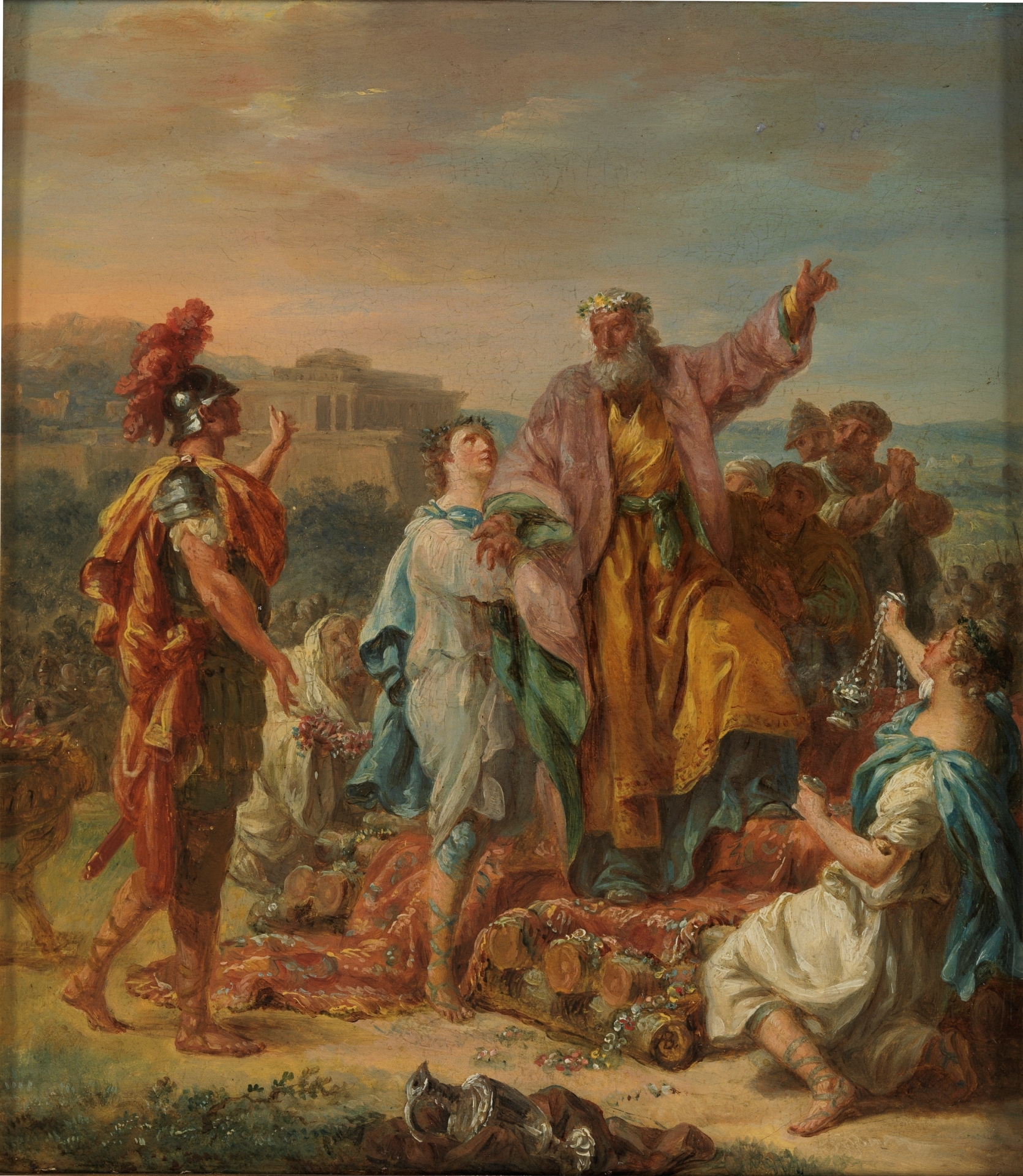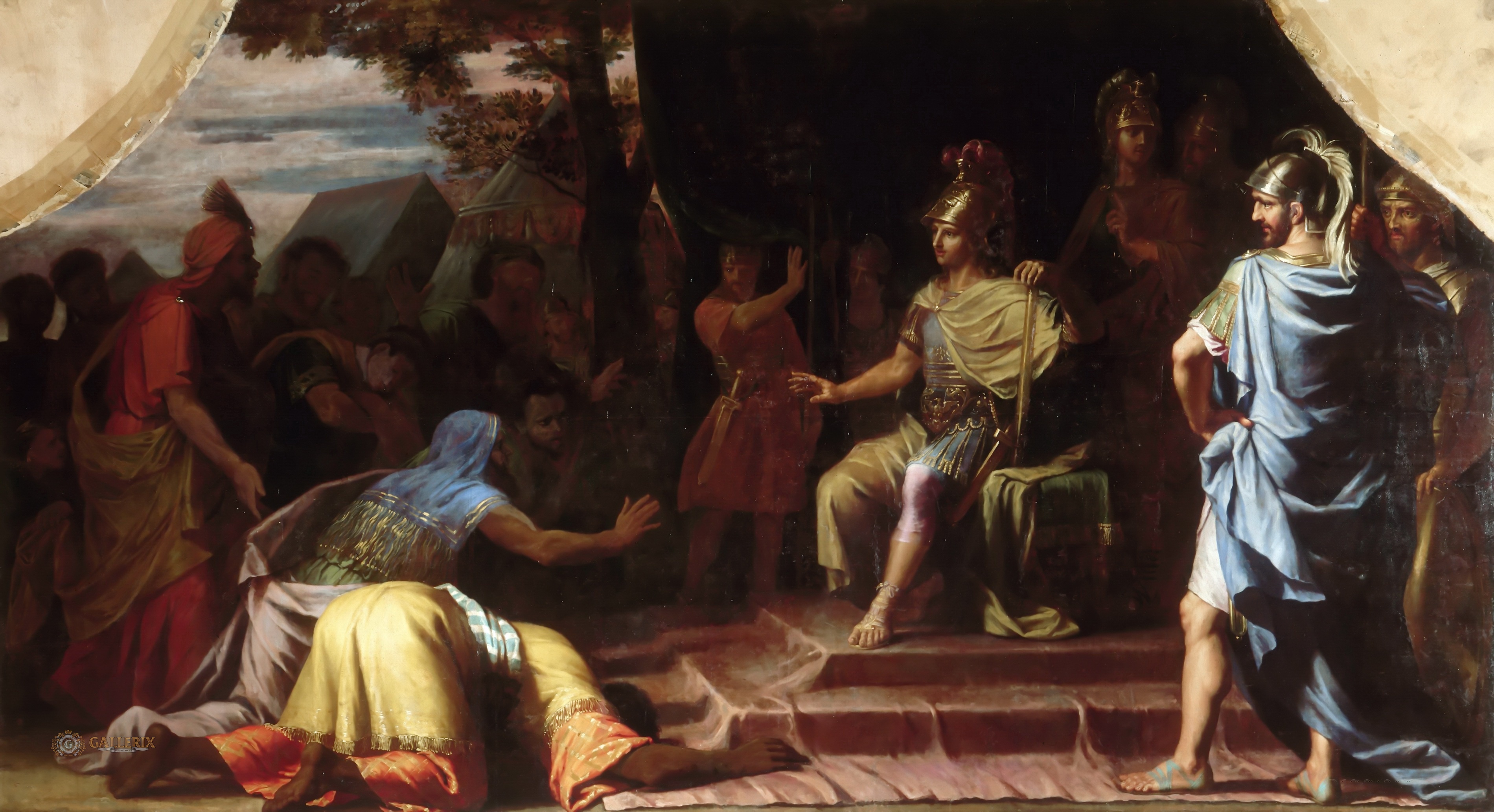Kalanos on:
[Wikipedia]
[Google]
[Amazon]
Kalanos, also spelled Calanus ( grc, Καλανὸς) ( – 323 BCE), was an ancient Indian 
 He was seventy-three years of age at time of his death. When the Persian weather and travel had weakened him, he informed Alexander that he would prefer to die rather than live as an invalid. He decided to take his life by
He was seventy-three years of age at time of his death. When the Persian weather and travel had weakened him, he informed Alexander that he would prefer to die rather than live as an invalid. He decided to take his life by
gymnosophist
Gymnosophists ( grc, γυμνοσοφισταί, ''gymnosophistaí'', i.e. "naked philosophers" or "naked wise men" (from Greek γυμνός ''gymnós'' "naked" and σοφία ''sophía'' "wisdom")) is the name given by the Greeks to certain anc ...
, and philosopher from Taxila who accompanied Alexander the Great
Alexander III of Macedon ( grc, Ἀλέξανδρος, Alexandros; 20/21 July 356 BC – 10/11 June 323 BC), commonly known as Alexander the Great, was a king of the ancient Greek kingdom of Macedon. He succeeded his father Philip II to ...
to Persis
Persis ( grc-gre, , ''Persís''), better known in English as Persia ( Old Persian: 𐎱𐎠𐎼𐎿, ''Parsa''; fa, پارس, ''Pârs''), or Persia proper, is the Fars region, located to the southwest of modern-day Iran, now a province. T ...
and later self-immolated himself by entering into a Holy Pyre, in front of Alexander and his army. Diodorus Siculus called him Caranus ( grc, Κάρανος).
He did not flinch as his body burned. He bode goodbye to the soldiers but not to Alexander. He communicated to Alexander that he would meet him in Babylon. Alexander died exactly a year later in Babylon. It was from Kalanos that Alexander learned of Dandamis
Dandamis (presumably Greek rendering of "Dandi- Svami") was a philosopher, swami and a gymnosophist, whom Alexander encountered in the woods near Taxila, when he invaded India in 4th century B.C. He is also referred to as Mandanes.
Biography ...
, the leader of their group, whom Alexander later went to meet in the forest.

Early life
Plutarch
Plutarch (; grc-gre, Πλούταρχος, ''Ploútarchos''; ; – after AD 119) was a Greek Middle Platonist philosopher, historian, biographer, essayist, and priest at the Temple of Apollo in Delphi. He is known primarily for hi ...
indicates his real name was Sphínēs and that he was from Taxila, but since he greeted people with the word "Kalē!" - perhaps ''kallāṇa (mitta)'' "Greetings (friend)" - the Greeks called him Kalanos. Kalanos lived at Taxila and led an austere life.
Kalanos was as suggested by most scholars was a Brahmin. Some early Western scholarship suggested Kalanos was a Jain
Jainism ( ), also known as Jain Dharma, is an Indian religion. Jainism traces its spiritual ideas and history through the succession of twenty-four tirthankaras (supreme preachers of ''Dharma''), with the first in the current time cycle being ...
, but modern scholarship rejects this notion as Jain ascetics are forbidden from using fire and deliberate self-harm due to their convictions about ahimsa. Further, Taxila and Gandhara were centers of Hinduism and Buddhism
Buddhism ( , ), also known as Buddha Dharma and Dharmavinaya (), is an Indian religions, Indian religion or Indian philosophy#Buddhist philosophy, philosophical tradition based on Pre-sectarian Buddhism, teachings attributed to the Buddha. ...
and had no Jain presence at all.
Meeting Alexander
Plutarch records that when first invited to meet Alexander, Kalanos "roughly commanded him to strip himself and hear what he said naked, otherwise he would not speak a word to him, though he came fromJupiter
Jupiter is the fifth planet from the Sun and the largest in the Solar System. It is a gas giant with a mass more than two and a half times that of all the other planets in the Solar System combined, but slightly less than one-thousandth t ...
himself." Kalanos refused the rich gifts offered by Alexander, saying that man's desire cannot be satisfied by such gifts. The gymnosophists believed that even if Alexander killed them "they would be delivered from the body of flesh now afflicted with age and would be translated to a better and purer life."
Alexander's representative Onesicritus
Onesicritus ( el, Ὀνησίκριτος; c. 360 BC – c. 290 BC), a Greek historical writer and Cynic philosopher, who accompanied Alexander the Great on his campaigns in Asia. He claimed to have been the commander of Alexander's fleet but w ...
had a discussion with several gymnosophists and Alexander was attracted by their thoughts on Greek philosophy, of which they generally approved, but criticized the Greeks for preferring custom to nature and for refusing to give up clothing.
Alexander persuaded Kalanos to accompany him to Persis and stay with him as one of his teachers. Alexander even hinted use of force to take him to his country, to which Kalanos replied philosophically, that "what shall I be worth to you, Alexander, for exhibiting to the Greeks if I am compelled to do what I do not wish to do?" Kalanos lived as a teacher to Alexander and represented "eastern honesty and freedom".
Death and prophecy
 He was seventy-three years of age at time of his death. When the Persian weather and travel had weakened him, he informed Alexander that he would prefer to die rather than live as an invalid. He decided to take his life by
He was seventy-three years of age at time of his death. When the Persian weather and travel had weakened him, he informed Alexander that he would prefer to die rather than live as an invalid. He decided to take his life by self-immolation
The term self-immolation broadly refers to acts of altruistic suicide, otherwise the giving up of one's body in an act of sacrifice. However, it most often refers specifically to autocremation, the act of sacrificing oneself by setting oneself ...
. Although Alexander tried to dissuade him from this course of action, upon Kalanos' insistence the job of building a pyre
A pyre ( grc, πυρά; ''pyrá'', from , ''pyr'', "fire"), also known as a funeral pyre, is a structure, usually made of wood, for burning a body as part of a funeral rite or execution. As a form of cremation, a body is placed upon or under the ...
was entrusted to Ptolemy
Claudius Ptolemy (; grc-gre, Πτολεμαῖος, ; la, Claudius Ptolemaeus; AD) was a mathematician, astronomer, astrologer, geographer, and music theorist, who wrote about a dozen scientific treatises, three of which were of importance ...
. Kalanos is mentioned also by Alexander's admirals, Nearchus and Chares of Mytilene
Chares of Mytilene ( grc, Χάρης ὁ Μυτιληναῖος) was a Greek belonging to the court of Alexander the Great. He was appointed court-marshal or introducer of strangers to the king, an office borrowed from the Persian court. He wrote ...
. The city where this immolation took place was Susa in the year 323 BC. Kalanos distributed all the costly gifts he got from the king to the people and wore just a garland of flowers and chanted vedic
upright=1.2, The Vedas are ancient Sanskrit texts of Hinduism. Above: A page from the '' Atharvaveda''.
The Vedas (, , ) are a large body of religious texts originating in ancient India. Composed in Vedic Sanskrit, the texts constitute the ...
hymns. He presented his horse to one of his Greek pupils named Lysimachus. He did not flinch as he burnt to the astonishment of those who watched. Although Alexander was not personally present at time of his immolation, his last words to Alexander were "We shall meet in Babylon". He is said to have thus prophesied the death of Alexander in Babylon, even though at the time of death of Kalanos, Alexander did not have any plans to go to Babylon.
A drinking contest was held in response to his death. According to Plutarch
Plutarch (; grc-gre, Πλούταρχος, ''Ploútarchos''; ; – after AD 119) was a Greek Middle Platonist philosopher, historian, biographer, essayist, and priest at the Temple of Apollo in Delphi. He is known primarily for hi ...
, citing Chares of Mytilene
Chares of Mytilene ( grc, Χάρης ὁ Μυτιληναῖος) was a Greek belonging to the court of Alexander the Great. He was appointed court-marshal or introducer of strangers to the king, an office borrowed from the Persian court. He wrote ...
, Promachus of Macedon
Promachus ( grc, Πρόμαχος, died 324 BC) was a common soldier in Alexander's army. In 324 BC at Susa, when a drinking contest was held in connection with the funeral of Indian philosopher Calanus. According to Plutarch, citing Chares of My ...
drank the equivalent of 13 litres of unmixed wine
Wine is an alcoholic drink typically made from fermented grapes. Yeast consumes the sugar in the grapes and converts it to ethanol and carbon dioxide, releasing heat in the process. Different varieties of grapes and strains of yeasts are m ...
and won the first prize of a golden crown worth a talent. He died three days later and forty-one other contestants allegedly died of alcohol poisoning
Alcohol intoxication, also known as alcohol poisoning, commonly described as drunkenness or inebriation, is the negative behavior and physical effects caused by a recent consumption of alcohol. In addition to the toxicity of ethanol, the main ps ...
as well.
Legacy
A letter written by Kalanos to Alexander is preserved byPhilo
Philo of Alexandria (; grc, Φίλων, Phílōn; he, יְדִידְיָה, Yəḏīḏyāh (Jedediah); ), also called Philo Judaeus, was a Hellenistic Jewish philosopher who lived in Alexandria, in the Roman province of Egypt.
Philo's de ...
.
A painting by Jean Baptiste de Champaigne depicts "Alexander the Great receiving the news of the death by immolation of the gymnosophist Calanus" is displayed at Chateau de Versailles et de Trianon, Versailles.
See also
*Peregrinus Proteus
Peregrinus Proteus ( grc-gre, Περεγρῖνος Πρωτεύς; c. 95 – 165 AD) was a Greek Cynic philosopher, from Parium in Mysia. Leaving home at a young age, he first lived with the Christians in Palestine, before eventually being expe ...
*Zarmanochegas
Zarmanochegas ( el, Ζαρμανοχηγάς; according to Strabo) or Zarmarus (according to Dio Cassius) was a gymnosophist (naked philosopher), a monk of the Sramana tradition (possibly, but not necessarily a Buddhist) who, according to ancient ...
References
{{authority control 390s BC births 323 BC deaths 4th-century BC philosophers Ancient Indian philosophers Rishis Indian spiritual teachers Indo-Greek religions and philosophy Philosophers and tutors of Alexander the Great Prophets Suicides by self-immolation 4th-century BC monks Ancient people who committed suicide